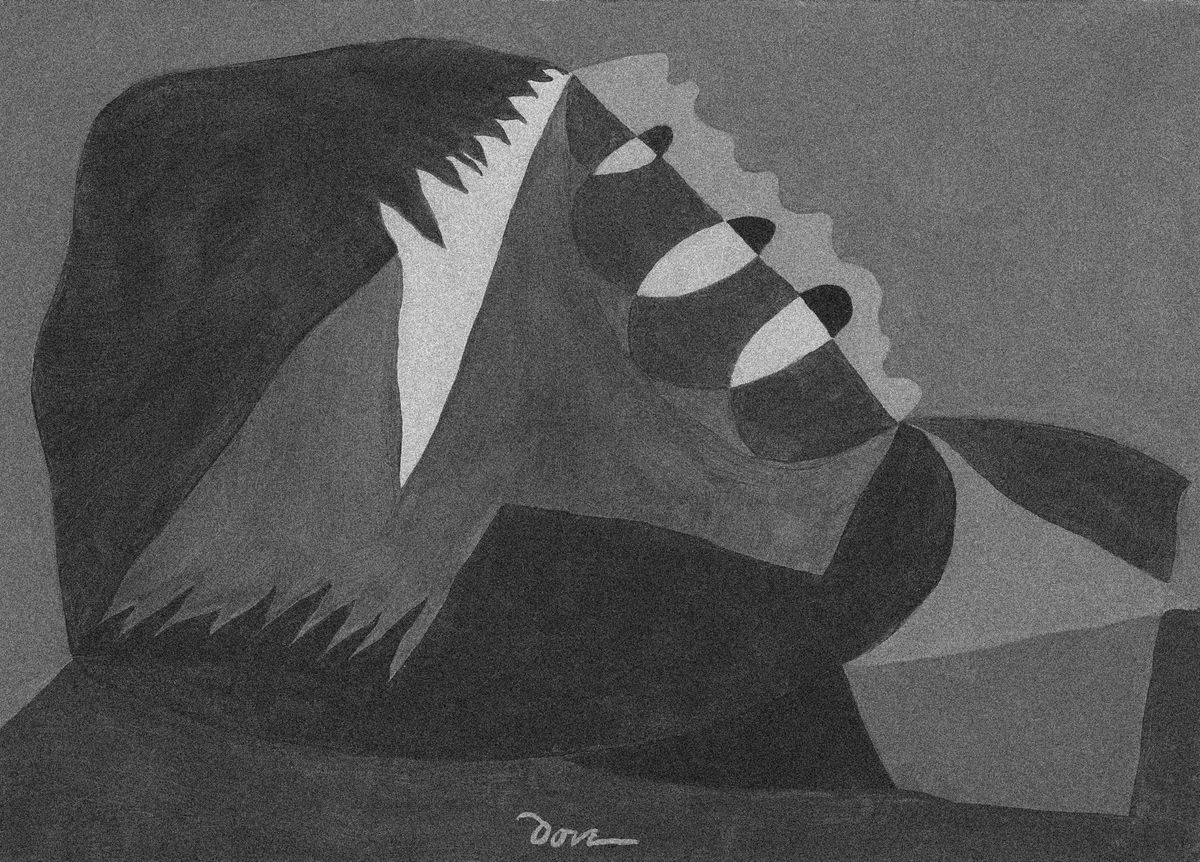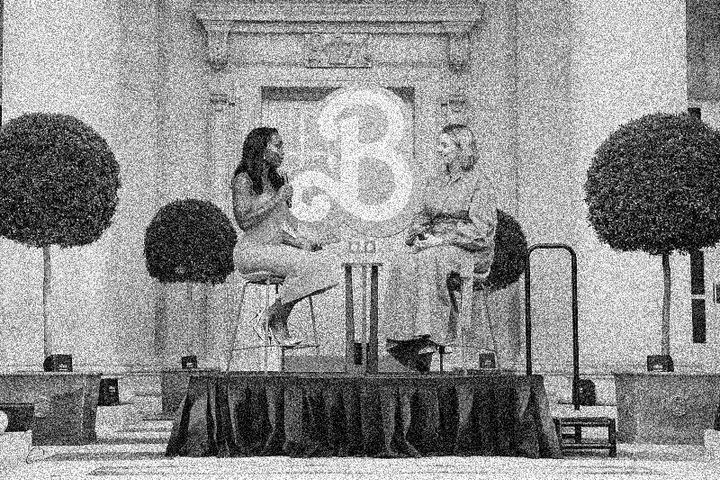No, actually Max Horkheimer is a super cool guy
The new socialist Left’s purification of Marxism from the bastardizations of Marx’s epigones is often as simplistic and inconsequential as the criticisms of Marx’s supposed inadequacies by those same epigones.

Ingar Solty’s recent examination of the life and times of Max Horkheimer revolves around a pot kettle black accusation: in mistaking one regime of capital accumulation for capitalism itself, Max Horkheimer’s critique of cultural reification unwittingly reified what it aimed to demystify. According to Solty, Horkheimer viewed the demobilization and integration of the working class in the post-war compromise as a permanent new feature of “late capitalism”; his critical theory was thus incapable of dealing with the unraveling of the Fordist-Keynesian era, even though he stubbornly adhered to his unjustifiably pessimistic views to the end.
The postwar era had created a brand of Fordist Marxism and a reproductionist left which had essentially mistaken the very specific spatiotemporal conjuncture of the postwar era as general features of a “late-capitalist” society, immobilized by the technologies of power and social control. They were thus unprepared for the social upheaval of May 1968 and the decade after.
Although he lacked a “perspective of praxis of how to change” society, faced with the upheaval of the 60s, Horkheimer
didn’t shift one iota. In the year that Adorno died, in 1969, he and Adorno wrote a new introduction to the Dialectic of Enlightenment. They insisted that they had been right to dismiss the working class as “integrated” into capitalism: “Today, critical thinking, which does not pause even in the face of progress, necessitates partisanship for the residuals of freedom, for tendencies towards real humanity, even if they seem omnipotent in light of the big historical trends. The development towards the total integration identified by this book has only been interrupted, it has not ceased.”
Solty’s basic critique—that Frankfurt School critical theory is locked in the Fordist era—has already been made by Peter Uwe Hohendahl in Prismatic Thought. “With the emergence of post-Fordist capitalism during the 1970s,” wrote Hohendahl in 1995, “Adorno’s administered society, [wherein] the cultural sphere is perceived as unified and controlled… lost its general plausibility.”
Twenty-five years have not made this critique any more convincing. The issue revolves around the conception of “integration”: of course the political-economic integration of the working class into western capitalist society, which tied productivity gains to wage increases until the 70s, unraveled in the neoliberal period. But as Hohendahl sees much better than Solty, the Frankfurt School was primarily concerned with a cultural integration, which worked simultaneously to dissolve the promise of autonomy in bourgeois culture as well as attenuate the resistance of the working class to capitalist society through the instruments of mass media (film, radio, and television, in particular).
Obviously there are very important structural differences between the Fordist and neoliberal periods. But insofar as we’re talking about the culture of capitalism, the definitive break which the critics of the Frankfurt School rely on just isn’t there.
That we watch Emma Stone instead of Greta Garbo, that our kids know the new Disney characters instead of the old ones, that we’re all constantly looking at screens instead of reserving a few hours after work for them—none of this adds up to any qualitative break. No doubt the invention of the internet and the forms of social media that go along with it demand an updating of the culture industry thesis, but it’s hard to see how they don’t reinforce the ability of mass media institutions to categorize and cater to commodity consumers.
The reason that some Marxists don’t like Frankfurt School critical theory is that they see it as competition, as intended to be a replacement for social theory as such. Perhaps some of the critical theorists thought about their work in this way, and it’s perfectly possible to read them as substituting a vaguely transhistorical “domination” for the more historically-specific parameters of “exploitation.”
But at their best, the Frankfurt School understood their inquiries into the culture industry, into the altered conditions of family life, and into an increasingly authoritarian psychological tendency as complementary to Marxist social theory, which served as the foundation upon which they traced the dialectic of culture and subjectivity. The culture industry thesis is clearly insufficient in itself to explain the demobilization of the working class: for that, an understanding of the nature and history of capitalism does just fine. What the culture industry thesis purports to do, rather, is to offer additional reasons for passivity in the face of exploitation, reasons having to do not with a pessimistic outlook or psychology but with the appearance of new and ubiquitous institutions devoted to the “massification” of culture beginning in the early twentieth century. It is, at root, a materialist thesis.
It also seeks to explain that “something extra” that evades illumination by the theory of structural oppression: how the dominated become actively invested in their own domination, how well-intentioned activists lose themselves to pseudo-activity, how the many fora of domesticated escape atrophy our critical capacities. Again, these are not alternatives to but historical accretions parasitic upon structural exploitation.
The Frankfurt School is not going to solve all of our problems, but a blanket rejection like Solty’s throws out the baby with the bathwater. The cultural industries are stronger than ever. As we all lose countless hours to Netflix and Twitter, stewing claustrophobically in the well-worn grooves of subcultural lunacy—today so many niche expressions of participation in a broader fealty to capitalism—it can only seem like sticking your head in the sand to say that the culture industry thesis is just plain wrong.
It’s predictable that this blinkered simplification often makes its way into the form of the critique. In order to get to his, again, rather old line, Solty has to spend the majority of the article running through Frankfurt School 101. It reads like CliffsNotes: summary + easily digestible critique. “Use the phrase ‘insufficiently dialectical’ in class, and you’ll definitely get extra participation points.”
I can only understand this kind of foray as a belated reckoning with academic ghosts, a working through of graduate student anxiety in the face of an indecipherable academic “theory” later discovered to be not only senseless drivel but also an expression of class privilege. The insidiousness of the postmodern academic ascendance of “theory” lay in the tendency to obfuscate: to create a melange of transhistorical commentary somehow at once political, philosophical, social, cultural, and ontological. To attempt to move past the intellectual atmosphere in which many of us were trained through outright exclusion and rejection of anything that came into contact with it is a kind of negative mimesis of the object of critique.
I certainly get the impulse, and I enjoy making fun of “radical” academic superstars who represent this abstract “theory” as much as the next person. But the way to work through the past, in this particular case, is to do what the “theorists” were unwilling (or unable) to do: to draw out the distinction that gives different kinds of inquiries their place and value.
The new socialist Left’s purification of Marxism from the bastardizations of Marx’s epigones is often as simplistic and inconsequential as the criticisms of Marx’s supposed inadequacies by those same epigones. If you don’t find the Frankfurt School useful or relevant, by all means don’t talk or write about them. But these efforts of boundary maintenance neither illuminate what is still useful in the theory today, nor show the best way to go beyond it.
■
James McDougall is a graduate student in political theory at the University of Chicago, where he studies the reception of Rousseau’s idea of amour-de-soi-même in Borneo between the years 1872 and 1874.



